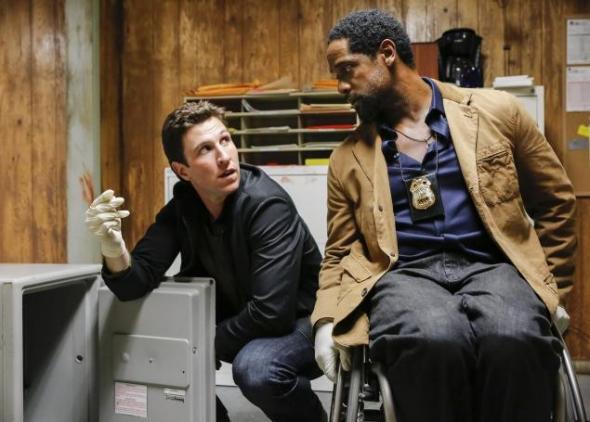Ken Sanzel, the showrunner of NBC’s Ironside reboot, which premiered last Wednesday to disappointing ratings, was a New York cop for 10 years before he embarked upon a career as a screenwriter, eventually working on TV shows such as Numbers and Blue Bloods. On the Ironside panel at this summer’s Television Critics Association gathering, Sanzel repeatedly stressed that he didn’t think of Ironside as a procedural but, rather, as a crime drama. I asked him more about that distinction.
Slate: You were very clear that you don’t think of Ironside as a procedural. Why not?
Ken Sanzel: I understand that it seems like a semantic distinction, because there’s a case every week, and there are twists and turns. It’s more about the scenes you leave out than the ones you put in. I have writers who come from CSI or Law & Order, and there are scenes that they automatically put into the first draft of their scripts, scenes that you see in all those shows. I take those things out. I say, “This scene doesn’t do anything to illuminate any of our characters or any of the real tragedy or curiosity of the story. So skip to the good parts.”
Slate: What parts are they?
Sanzel: You know the scene. It’s the one where you go and talk to the boss of the dead guy, and the boss of the dead guy tells you about the wife, and then you go see the wife. If the wife is the interesting thing, then go right to the wife! Don’t do those stutter steps. If there’s some fascinating phone-record thing, I don’t need to see a big, long computer sequence of dit-dit-dit-dit-dit … That’s what I mean. Procedurals have a sort of kabuki to them, and I try to get rid of that.
It’s also philosophical: Procedurals have the same end game. Procedurals are always about solving the crime, solving the mystery, catching someone. With ours, it’s often about effecting a result, which isn’t necessarily the same thing.
It’s an ongoing fun conversation with the network. They’ll say, “Don’t you need to see this or that, or where’s the red herring?” And I’ll say, “Nobody cares about the red herring. The red herring is boring.”
Slate: But in cutting out the red-herring scenes, aren’t you losing the element of misdirection?
Sanzel: Here’s an example in the pilot: the scene where Ironside interviews the victim’s boss. In a lot of episodes, that’s just about the boss as a suspect. You know, maybe he’s going to be the secret bad guy. To me, the takeaway from that scene is the way Ironside surprises him and upsets him. So that scene exists as a piece of character. It tells me about the cop. It doesn’t really tell me about the boss in any way that matters. You can’t really get that far ahead of the audience with a mystery.
The pilot also fleshes out the victim’s past. She becomes a human being and not just a problem to be solved. I think there’s poignancy and tragedy and surprise in the things that we uncover about her. That’s not the job of a procedural. But a crime drama’s main mission is to get you to wonder: “Do I condemn her at the end? Do I exonerate her? Do I realize that she’s a more complex person than I thought she was?” And in a weird way, while Ironside solves something, he really probes the truth more than he enforces the law.
Slate: I have to confess that when I watched the pilot, I felt a little cheated, because I like to see exactly how the detective works things out. Ironside just sort of knew what had happened, then he had to find out how and why.
Sanzel: Why did you feel cheated?
Slate: Because I’m used to procedurals, to following Step 1, Step 2, Step 3 …
Sanzel: The thing is, if I do that, then you’re going to say, “Oh, it’s that show that they have a million of on CBS.” I want you to feel cheated to the point that you start to be more interested in characters. I think Ironside is an eternal character. He’s the guy who puts things in his pocket at the beginning to hold for the end. He’s not always laying out what he’s thinking, and I think that’s going to be the reason you watch it as a crime drama. I think you’ll stay for the characters.
